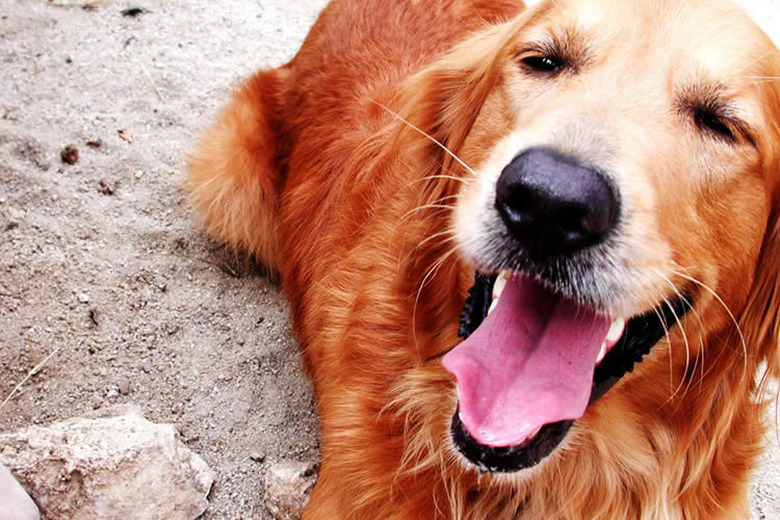Why Do Dogs Howl?
The howling dog, I'm sure, almost everyone has encountered at one time or another, but most likely when you're trying to get some sleep during the night. The howl is one of the coolest ways a dog communicates, just not at two in the morning!
Dogs howl for a number of reasons, one of which, communication, I've briefly mentioned. They also howl to say, "Hey look, I'm here!" Dogs like making their presence known, especially if they're being ignored or if they want something.
High-pitched sounds also goad dogs to howl. The sirens of emergency vehicles (ambulances, police cars, fire engines, and even some musical instruments) bother some dogs while others remain unaffected.
But what if your dog howls excessively? What action can you then take? Before we look into the treatment of too much howling, let us first examine just where all this wanting to howl began in the first place.
(Were)wolves
(Were)wolves
What is the biggest howler of all time? Just think of all those gothic horror movies and in the distance you'll always hear the bay of the wolf. These "children of the night" are the ancestors of our common everyday house dog. And wolves, my friends, are big time howlers!
Since dogs are descended from wolves, their methods of communication have been passed down over the years in what we term "genetic memory." Genetic memory refers to the inherited instincts in animals and humans.
In the wild, wolves and wild dogs communicate their locations by howling when scouting for food or guiding pack members back to the pack. This instinct is most evident in dogs such as Alaskan Malamutes, Siberian Huskies, and the Samoyed as well as other northern breeds.
All for the pack
All for the pack
Being descended from a pack animal, dogs may be responding to howl-related noises like sirens, music and even a human howl for the sole purpose of pack bonding. These above mentioned sounds trigger the instinct.
Howling for help
Howling for help
Different howls express different emotions. Chances are you're familiar with the sounds your dog makes, and howling is no different. When a dog, or any animal is in pain, you'll know it! Howling is a sound that can be heard over a distance and dogs may howl when danger is near, they're injured or something is scaring them. If you're ignoring your dog, howling also is a great way to get your attention. A dog can also emit a howl that resembles crying when they are sad or in mourning.
Master of their domain
Master of their domain
Dogs mark their territory by peeing on the area they claim as their own, but howling can be used in a similar fashion, stating, "this is my area... get lost!"
The hunting howl
The hunting howl
Some dogs are trained to signal with a howl when they uncover an animal during a hunt. Howls can be heard further than a bark and over longer distances.
Missing their owners
Missing their owners
When home alone, dogs may howl because of separation anxiety. Excessive howling when separated from their owner is usually accompanied by restlessness, pacing, destructiveness, and other signs.
Attention
Attention
Dogs wanting the attention of their owner often howl in order to gain that intention. Ignoring the howls and showing your dog he is invisible to you may alter your dog's behavior, demonstrating that this is not the proper way to ask for something. It's important to note here that you should not reward your dog for howling but if he's quiet, he'll get that treat!
Medical reasons
Medical reasons
As mentioned, dogs howl when hurt or sick but if your dog is howling more than is usual, you'd better pay a visit to the veterinarian to rule out health issues.
A howling mouthful
A howling mouthful
Desensitizing & Counterconditioning (DSCC) is a mouthful, but this process may be the solution to your dogs constant howling at all the annoying noises our world manufactures. DSCC is used to condition your dog into learning to be quiet as this is a common treatment for fears, phobias, anxiety and aggression involving arousal and emotions.
If howling is a firmly rooted problem concerning something your dog feels deeply about, you must alter your dog's motivation and feelings, (the underlying reasons for your dog's behavior.)
If DSCC is something that you think may help your dog look for a professionally Certified Applied Animal Behaviorist (CAAB) or a board-certified veterinary behaviorist (Dip ACVB) in your area.
If you rather choose to hire a Certified Professional Dog Trainer (CPDT) please be certain the trainer has extensive experience in desensitization and counterconditioning.
More information on Desensitization and Counterconditioning can be found at The Humane Society, Dog Service Search, and The Dog's Seminar Directory.
